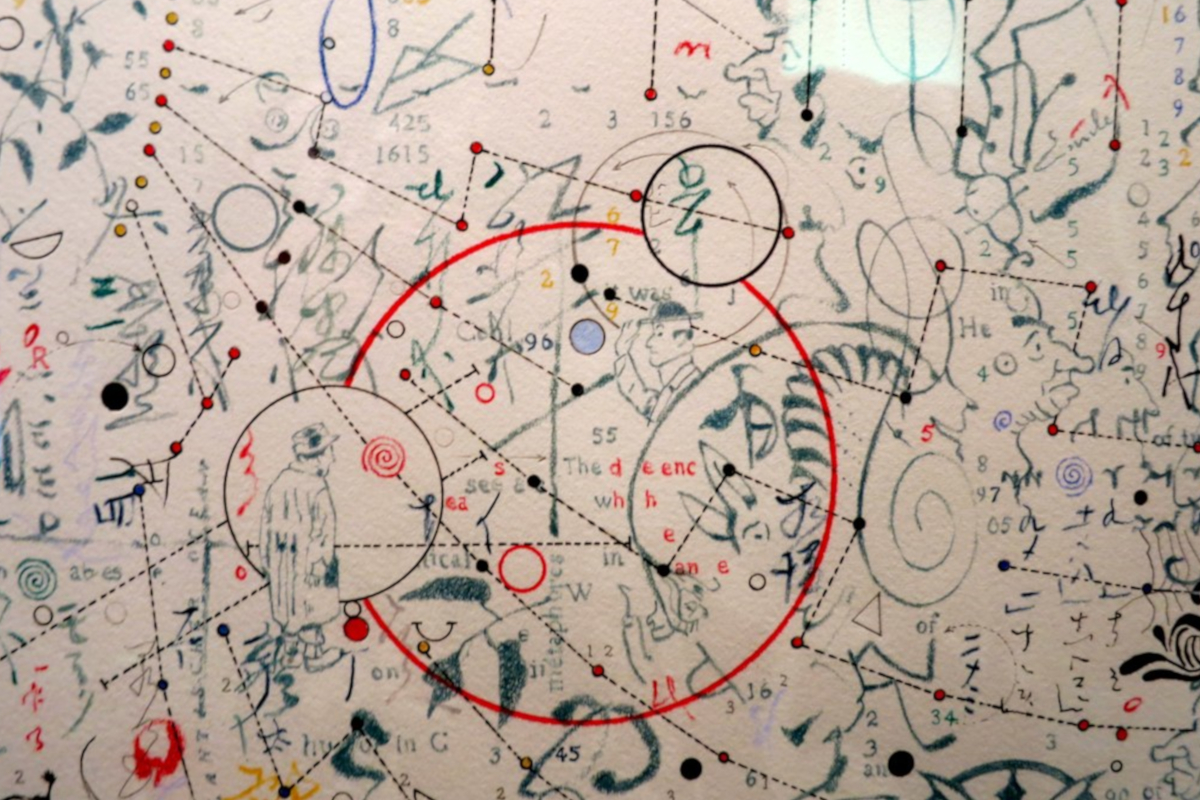EU: Mediterranean migration plan underpinned by more policing and border enforcement in repressive states
Topic
Country/Region
24 November 2022
An extraordinary meeting of the EU Justice and Home Affairs (JHA) Council will take place tomorrow to discuss migration. The European Commission has published a plan setting out the general direction for action in the central Mediterranean. Other documents obtained by Statewatch shed more light on the matter: more intensive police cooperation with repressive states and externalisation of borders instead of relocation of refugees, in full knowledge of the dire situation for people seeking safety, in particular in Libya.
Support our work: become a Friend of Statewatch from as little as £1/€1 per month.

Image: IFRCRCS, CC BY-NC-ND 2.0
The extraordinary JHA Council will discuss “the urgent challenges and joint way forward” for EU migration policy. The meeting comes in the wake of the conflict between France and Italy over the disembarkation of the Ocean Viking and the 234 people it eventually brought to safety in Toulon after rescuing them at sea near the Libya coast, and an increase in irregular journeys across the Mediterranean "of 77% compared with the same period of 2021," says the Council.
On Wednesday at the European Parliament, the European Commissioner ‘for promoting our European way of life’, Margaritas Schinas, called for common solutions to resolve the situation in the Mediterranean: “We cannot continue working, event by event, ship by ship. Time has come for a sustainable, comprehensive, holistic European asylum and migration framework."
The meeting tomorrow will apparently cover “the current situation along all migratory routes,” but significant attention is likely to go to the European Commission’s latest action plan on migration (pdf), “containing 20 actions designed to address the immediate and ongoing challenges along the Central Mediterranean route.”
These fall into three categories: externalising migration controls, managing search and rescue in the Mediterranean, and enforcing the ‘voluntary solidarity mechanism’ signed in June by 18 member states and three Schengen associated states.
Externalising migration control
The first actions listed in the plan concern cooperation with third countries to prevent irregular migration, and there are vast amounts of money available:
“At least EUR 580 million for 2021- 2023 under NDICI-Global Europe [Neighbourhood, Development and International Cooperation Instrument] and other instruments are currently foreseen to be deployed through regional multi-country programming for migration related support to partners in North Africa, alongside bilateral EU programmes with individual countries.”
One action foresees strengthening the capacity of Egypt, Tunisia and Libya to “prevent irregular departures, support more effective border and migration management, and reinforce search and rescue capacities.” A draft version of the EU’s ‘Operation Action Plan 2023: Migrant smuggling’, which is currently being discussed by officials in the Council’s internal security committee and has been seen by Statewatch, provides some more details on what that means in practice.
For example, an activity entitled ‘Central MED Route’, led by the Italian police, includes the following activities:
“Improve and make effective the real-time information exchange and the operation response, including the exchange of intelligence/information with Europol and Eurojust, to enhance investigations in source, transit and destination countries along the central Mediterranean route”
“Creation of operational and investigative taskforces to better run joint investigations and to share information in close cooperation with third country investigators”
“Tasksforces may eventually include the deployment of investigators on ad-hoc basis for short term activities for face-to-face collaboration with Northern Africa Law Enforcement and Judicial Services, ensuring cooperation with Europol, Eurojust, EUBAM [EU Border Assistance Mission Libya], ICC [International Criminal Court], MS & TP [member states and, presumably, third parties] and when necessary as well with other international organisations working in the field”
The fostering and boosting of cooperation with Libya and North African States also comes with renewed training on surveillance equipment. Just this week, an investigation by Le Monde revealed that Frontex is providing the so-called Libyan coast guard with access to its surveillance equipment.
This strengthened collaboration between police forces will, of course, do little to nothing to improve the situation for migrants in Libya, as EU member states know all too well. A Presidency discussion paper (pdf) circulated in the Council on Halloween noted that the political-military situation in Libya:
“…has had direct impact on the country’s capacities to manage migration, as well as on the conditions of the migrants present in the country’s territory, especially in terms of safeguarding their fundamental rights, improving access to basic services and protecting them from all forms of exploitation, abuse and violence, as too often demonstrated by ill-treatment of those held in detention centres.”
Managing rescues in the Mediterranean
The Commission’s action plan underlines that:
“Providing assistance to any persons found in distress at sea until the point of safe disembarkation, irrespective of the circumstances that lead people to be in such a situation, is a legal obligation for EU Member States, as established in international customary and conventional law as well as Union law.”
In which case, many would argue that the ideal solution would be for a coordinated, publicly-funded, state-led search and rescue operation in the Mediterranean. On the other hand, the Commissioner for Migration and Home Affairs, Ylva Johansson, said this week:
"The situation today with the private vessels operating at sea is a scenario which still lacks sufficient clarity… This current challenge was not thought of when maritime law was first agreed.”
This appears to be a rather partial reading of history. In response to the thousands of refugees who fled Vietnam from 1975 onwards – known as “boat people” – led to various volunteer sea rescue initiatives. The International Convention on Maritime Search and Rescue was adopted in 1979 and entered into force in 1985.
In any case, Johansson called for “more cooperation between member states, flag states and coastal states and other relevant actors.” What this means in practice remains to be seen. In Italy, the new interior minister Matteo Piantedosi wants to launch a new code of conduct for rescue NGOs, following on from the disastrous 2017 code of conduct that led to multiple organizations having to halt operations in the Mediterranean.
The Commission’s action plan, meanwhile, aims for:
“…discussions in the International Maritime Organization on the need for a specific framework and guidelines for vessels having a particular focus on search and rescue activities, particularly in view of developments in the European context.”
Enforcing the voluntary solidarity mechanism
The Commission’s action plan notes that implementation of the voluntary solidarity mechanism, the latest ad-hoc measure designed to respond to the migratory pressure faced by southern EU states, needs to be stepped up.
Of the 8,000 places for the relocation of refugees that have been pledged, only 117 people have actually been relocated, while France recently announced that it will no longer take in 3,500 refugees currently in Italy, in response to the Italian government’s refusal to give safe harbour to the Ocean Viking rescue vessel.
However, relocation was only part of the “solidarity mechanism”. As Statewatch noted in June:
“…member states that do not want to relocate refugees will be able to make "a financial contribution to a benefiting Member State, or also to projects in third countries that may have a direct impact on the flows at the external border".
The “operational conclusions” of a meeting on the mechanism on 20 October (pdf), obtained by Statewatch, show that there is clear enthusiasm for the ‘externalisation as solidarity’ possibility. The ‘MED5’ states (Malta, Cyprus, Italy, Greece and Spain) have put forward project proposals as part of the mechanism, which include:
- Malta: “Repairs of sea vessel of the Libyan Coast Guard”
- Italy: “Support to authorities of Tunisia, Egypt, Libya”
- Spain: “Border controls in third countries”
Meanwhile, Czechia is working with Italy “on a border management project in Libya implemented by ICMPD [the International Centre for Migration Policy Development],” and Switzerland “confirmed its interest in projects in third countries, namely Northern Africa”.
Documentation
- European Commission: EU action plan for the Central Mediterranean (pdf)
- European Commission: Solidarity Platform Pact: Status call with the Contributing States on Financial Solidarity: Thursday, 20 October: Operational Conclusions (SENSITIVE, pdf)
- Presidency: Central Mediterranean migration route - Presidency discussion paper (Council doc. 13822/22, LIMITE, 31 October 2022, pdf)
Our work is only possible with your support.
Become a Friend of Statewatch from as little as £1/€1 per month.
Further reading

Tracking the Pact: EU seeks to seal off Balkan Route with expanded Frontex deployments
The European Commission wants to launch negotiations with Serbia, Montenegro, Bosnia and Albania so that EU border agency Frontex can extend its zone of operations. Currently, Frontex operations in those states can only take place at the borders they share with EU member states, in accordance with the 2016 Frontex Regulation. Upgrading the EU's agreements with the Balkan states to take into account the powers granted to Frontex by the 2019 Regulation will make it possible to deploy EU border guards at non-EU borders - for example, between Bosnia and Serbia, or between Serbia and Montenegro. An agreement with North Macedonia has already been signed. The aim is to halt the irregular movement of people through the Balkans towards "core" EU member states.

'Voluntary Solidarity Platform' for relocating refugees failing to meet targets
On 22 September the European Commission hosted a meeting on the "Voluntary Solidarity Mechanism" (VSM), the latest ad-hoc system set up to relocate refugees from the EU's Mediterranean member states to other member states. It appears that the speed of transfers is not as quick as is hoped, with the conclusions noting that it is "crucial that all Member State initiate to implement the pledges," with the need for "a higher pace of transfers already ahead of the December Council meeting."

External migration control efforts spawn sub-groups and action plans
Various sub-groups and action plans have emerged from the various 'migration dialogues' that have been set up over the last decade, such as the Khartoum Process, the Rabat Process and the Budapest Process. This includes cooperation on operational action. The 'dialogues' bring together EU member states along with other European, African, Central Asian and other states. A recent set of presentations given to a Council of the EU working group make no mention of democratic scrutiny or legitimacy.
Spotted an error? If you've spotted a problem with this page, just click once to let us know.

